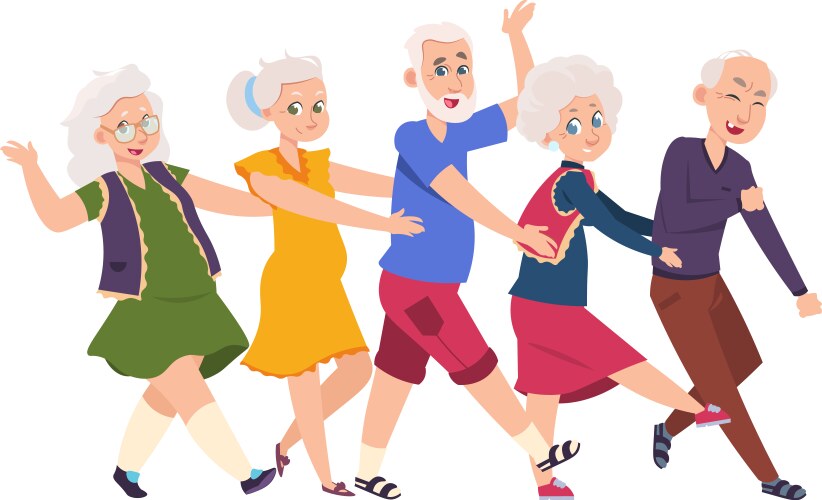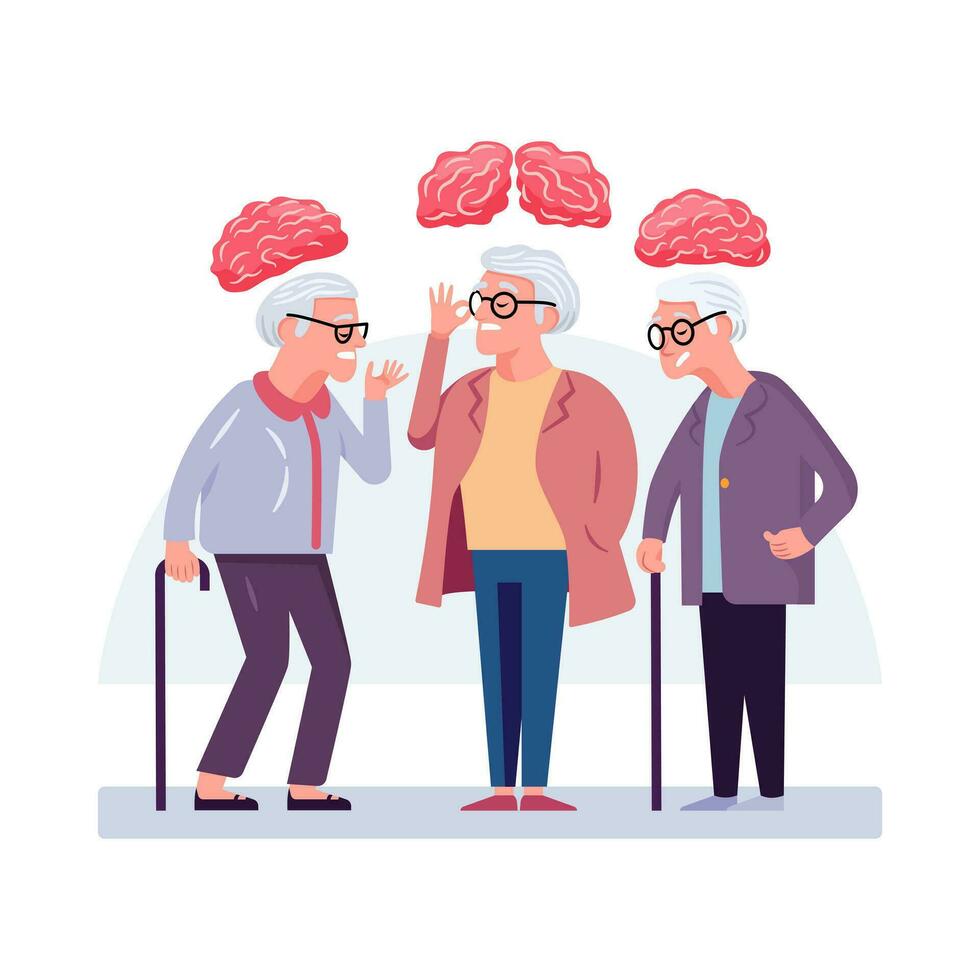
Embracing the Golden Years: Tips and Tricks for a Fulfilling Old Age
Introduction
Old age is joyful and liberating if you plan for it early on. This statement encapsulates the essence of a well-prepared and fulfilling journey through the golden years. The aging process, often viewed through a lens of decline and limitation, can instead be a time of joy, freedom, and new opportunities. However, the key to unlocking this potential lies in proactive planning and a positive mindset.
Importance of Proactive Planning for Old Age
Proactive planning for old age is not merely about preparing for eventualities; it’s about creating a roadmap that allows for continued growth, happiness, and well-being. As we age, our needs and priorities evolve, necessitating thoughtful consideration of various aspects of life. By addressing these areas early on, we can ensure a smooth transition into our senior years, minimizing stress and maximizing enjoyment.
Planning ahead helps in maintaining independence, managing health, and ensuring financial stability. It empowers individuals to make informed decisions about their future, reducing the uncertainty that often accompanies aging. Furthermore, it provides peace of mind, knowing that we have taken steps to safeguard our well-being and happiness.
Overview of Key Areas to Focus on for a Fulfilling Life
To lead a fulfilling life in old age, it’s essential to focus on several key areas:
- Physical Health: Maintaining an active lifestyle and a balanced diet to preserve mobility and vitality.
- Mental Health: Engaging in activities that stimulate the mind and promote emotional well-being.
- Financial Management: Ensuring financial security through careful planning and management of resources.
- Social Engagement: Staying connected with family, friends, and community to foster a sense of belonging.
- Healthy Relationships: Avoiding toxic relationships and nurturing positive connections.
- Embracing Technology: Utilizing technological tools to enhance daily living and stay informed.
- Hobbies and Interests: Pursuing activities that bring joy and fulfillment.
- Adaptability: Being open to change and willing to adapt to new circumstances.
- End-of-Life Planning: Making arrangements for end-of-life care to ensure dignity and reduce the burden on loved ones.
- Seeking Help: Recognizing when to seek assistance and utilizing available resources.
Objective and Target Audience
The objective of this article is to provide actionable tips and practical advice to help older adults lead a fulfilling and joyful life. By addressing the key areas outlined above, the article aims to empower seniors to take charge of their well-being and embrace their golden years with confidence and optimism.
Our target audience includes older adults who are planning for or already experiencing their senior years, as well as their families and caregivers who wish to support them. The insights and recommendations provided are designed to be practical, compassionate, and easy to implement, ensuring that everyone can benefit from the wisdom of proactive aging.

Maintain Good Physical Health
Maintaining good physical health is the cornerstone of a joyful and liberating old age. It ensures not only longevity but also the ability to enjoy life to the fullest.
Stay Active
Importance of Regular Exercise: Regular physical activity is essential for maintaining strength, flexibility, and balance, which are crucial for preventing falls and injuries. Exercise also boosts mood, energy levels, and overall well-being by promoting the release of endorphins, the body’s natural feel-good hormones.
Suggested Activities:
- Walking: A simple yet effective way to stay active. Walking improves cardiovascular health, strengthens muscles, and enhances mood. Aim for brisk walks to get the heart pumping.
- Swimming: Provides a full-body workout without putting stress on the joints, making it ideal for seniors. Swimming improves cardiovascular health, flexibility, and strength.
- Yoga: Enhances flexibility, balance, and strength. Yoga also incorporates breathing exercises and meditation, which are beneficial for mental health.
- Tai Chi: A gentle form of martial arts that improves balance, flexibility, and mental focus. Tai Chi is particularly effective in reducing the risk of falls.
Recommended Exercise Guidelines: Aim for at least 150 minutes of moderate-intensity aerobic activity or 75 minutes of vigorous-intensity aerobic activity each week. Additionally, include muscle-strengthening activities on two or more days a week to work all major muscle groups.
Balanced Diet
Importance of a Varied and Nutritious Diet: A balanced diet provides the essential nutrients needed to maintain health, support bodily functions, and prevent chronic diseases. Good nutrition is vital for energy, immune function, and overall vitality.
Key Food Groups and Nutrients to Focus On:
- Fruits and Vegetables: Rich in vitamins, minerals, and antioxidants that help protect against diseases.
- Whole Grains: Provide fiber, which is important for digestive health, and help maintain steady blood sugar levels.
- Lean Proteins: Essential for muscle maintenance and repair. Include sources like fish, poultry, beans, and nuts.
- Healthy Fats: Important for brain health and hormone production. Sources include avocados, nuts, seeds, and olive oil.
- Dairy or Dairy Alternatives: Provide calcium and vitamin D for bone health.
Hydration and Limiting Unhealthy Foods:
- Hydration: Drink plenty of water throughout the day to stay hydrated. Proper hydration is crucial for kidney function, digestion, and overall health.
- Limiting Unhealthy Foods: Reduce intake of sugary drinks, processed foods, and high-sodium snacks. Avoid trans fats and limit saturated fats to maintain cardiovascular health.
Regular Check-ups
Importance of Routine Medical Visits: Regular medical check-ups are essential for monitoring health and catching any potential issues early. These visits help in managing existing conditions and preventing new ones from developing.
Recommended Screenings and Vaccinations:
- Screenings: Regular screenings for blood pressure, cholesterol, diabetes, and osteoporosis are important. Cancer screenings (such as mammograms and colonoscopies) should be done as recommended by healthcare providers.
- Vaccinations: Stay up to date with vaccinations, including the flu shot, pneumonia vaccine, and shingles vaccine, to prevent serious illnesses.
Benefits of Early Detection and Preventive Care: Early detection of health issues allows for more effective treatment and better outcomes. Preventive care helps avoid complications and maintain a higher quality of life. Regular check-ups and screenings can lead to early intervention, reducing the risk of severe health problems and promoting long-term well-being.
By focusing on these aspects of physical health, older adults can maintain their vitality, independence, and overall quality of life, ensuring that their golden years are filled with joy and liberation.

Keep Good Mental Health
Maintaining good mental health is just as important as physical health in ensuring a joyful and liberating old age. Mental well-being influences overall quality of life, cognitive function, and emotional resilience.
Stay Mentally Active
Activities that Challenge the Brain:
- Puzzles: Engaging in puzzles like crosswords, Sudoku, and jigsaw puzzles can stimulate the brain and improve cognitive function.
- Reading: Regular reading, whether books, magazines, or articles, keeps the mind engaged and can introduce new ideas and perspectives.
- Learning New Skills: Taking up new hobbies or learning new skills, such as playing a musical instrument, painting, or even learning a new language, can help keep the brain sharp and active.
Benefits of Lifelong Learning and Mental Engagement:
Lifelong learning and mental engagement contribute to neuroplasticity, the brain’s ability to form and reorganize synaptic connections, especially in response to learning or experience. This can delay the onset of cognitive decline and improve overall cognitive function. Engaging in mentally stimulating activities can also boost self-esteem and provide a sense of accomplishment.
Mindfulness and Relaxation
Techniques to Reduce Stress:
- Meditation: Practicing meditation can help reduce stress, increase mindfulness, and promote emotional stability. Even a few minutes a day can make a significant difference.
- Deep Breathing Exercises: Deep breathing exercises can calm the mind, reduce anxiety, and improve overall mental clarity. Techniques such as diaphragmatic breathing or box breathing are simple and effective.
- Yoga: Combining physical movement with mindfulness, yoga helps reduce stress and improve mental and physical well-being.
Importance of Mental Well-being: Mental well-being is crucial for maintaining a positive outlook on life and managing the challenges that come with aging. Good mental health enhances emotional resilience, reduces the risk of mental health disorders, and promotes a sense of inner peace and contentment.
Seek Professional Help
Recognizing Signs of Depression and Anxiety: It’s important to be aware of the signs of mental health issues such as depression and anxiety. Symptoms may include persistent sadness, loss of interest in activities, changes in appetite or sleep patterns, feelings of hopelessness, and excessive worry or fear.
Importance of Mental Health Services and Therapy: Seeking professional help when needed is vital for maintaining mental health. Therapists, counselors, and mental health professionals can provide support, coping strategies, and treatment options for various mental health conditions. Therapy can help individuals process emotions, develop healthy coping mechanisms, and improve overall well-being.
By staying mentally active, practicing mindfulness and relaxation techniques, and seeking professional help when necessary, older adults can maintain good mental health, ensuring that their golden years are not only joyful but also emotionally and mentally fulfilling.

Manage Finances Through Lifetime
Effective financial management is a critical component of enjoying a secure and fulfilling old age. By planning and managing finances wisely, seniors can ensure their needs are met and avoid unnecessary stress.
Financial Planning
Importance of Saving and Investing for Retirement: Saving and investing for retirement are essential for maintaining financial independence and security. Starting early allows for the accumulation of wealth over time, benefiting from compound interest. Diversifying investments can also help mitigate risks and ensure a steady income during retirement.
Consulting with Financial Advisors: Financial advisors can provide valuable insights and guidance tailored to individual financial situations. They can help create a comprehensive retirement plan, advise on investment strategies, and ensure that all aspects of financial health are addressed. Consulting with a professional ensures that decisions are well-informed and aligned with long-term goals.
Budgeting and Managing Expenses: Creating and adhering to a budget is crucial for managing expenses and maintaining financial stability. A budget helps track income and expenditures, identify areas for savings, and ensure that spending aligns with financial goals. Regularly reviewing and adjusting the budget can help accommodate changing circumstances and priorities.
Pension and Benefits
Understanding and Maximizing Retirement Benefits: Understanding the details of pension plans and retirement benefits is crucial for maximizing income during retirement. This includes knowing the payout options, taxation implications, and strategies for optimizing benefits. For example, delaying Social Security benefits can result in higher monthly payments.
Government Programs and Support: There are various government programs designed to support seniors financially. These include Social Security, Medicare, Medicaid, and Supplemental Security Income (SSI). Being aware of eligibility criteria and the benefits provided by these programs can help seniors make informed decisions and access necessary support.
- Social Security: Provides a source of income for retirees, based on their earnings history. Understanding when and how to claim benefits can significantly impact financial stability.
- Medicare: Offers health insurance for those aged 65 and older, covering hospital and medical expenses. Knowing the coverage options and costs can help in making informed healthcare decisions.
- Medicaid: Assists with medical costs for individuals with limited income and resources. It can cover long-term care, which is a significant concern for many seniors.
- Supplemental Security Income (SSI): Provides financial assistance to individuals aged 65 or older with limited income and resources, ensuring they have a basic level of financial support.
By engaging in thorough financial planning, understanding and maximizing retirement benefits, and utilizing available government programs, older adults can manage their finances effectively. This financial stability not only ensures a secure old age but also allows seniors to focus on enjoying their golden years without undue financial stress.

Be Socially Active
Maintaining social connections and staying engaged in community activities are vital aspects of a fulfilling and enriching old age. Social interaction contributes to mental and emotional well-being, fosters a sense of belonging, and provides opportunities for personal growth and fulfillment.
Stay Connected
Importance of Maintaining Social Connections: Social connections play a crucial role in combating loneliness and isolation, which can negatively impact physical and mental health. Regular interaction with family, friends, and peers promotes a sense of belonging and emotional support. It also stimulates cognitive function and enhances overall quality of life.
Participating in Community Events and Groups: Engaging in community events, clubs, and groups allows seniors to connect with others who share similar interests and experiences. These activities provide opportunities for socializing, learning, and contributing to the community. Whether it’s attending local gatherings, joining a book club, or participating in recreational activities, involvement in the community fosters a sense of purpose and fulfillment.
Volunteer and Give Back
Benefits of Volunteering: Volunteering offers numerous benefits for older adults, both for themselves and for the community:
- Sense of Purpose: Volunteering provides a meaningful way to contribute to society and make a positive impact on others’ lives.
- Social Engagement: It connects seniors with like-minded individuals and builds new friendships.
- Physical and Mental Health: Volunteering can improve overall well-being by reducing stress, boosting self-esteem, and promoting physical activity.
- Skill Enhancement: It allows seniors to utilize their skills and expertise, fostering personal growth and learning.
Opportunities to Engage in Meaningful Activities: There are various opportunities for seniors to volunteer and give back to the community:
- Mentoring Programs: Share knowledge and experience with younger generations or newcomers to the community.
- Community Service: Participate in local clean-up efforts, food drives, or fundraising events.
- Arts and Culture: Contribute to museums, theaters, or libraries through guiding tours or assisting with events.
- Healthcare and Social Services: Support hospitals, nursing homes, or social service organizations through patient companionship or administrative assistance.
By staying socially active, participating in community events and groups, and volunteering to give back, older adults can cultivate meaningful connections, maintain a sense of purpose, and enrich their lives during their golden years. These activities contribute to a vibrant and fulfilling old age, promoting overall well-being and happiness.

Stay Away from Toxic Relationships
Maintaining healthy relationships is crucial for emotional well-being and overall happiness in old age. Toxic relationships, characterized by negativity, manipulation, and lack of support, can have detrimental effects on mental and emotional health. Recognizing and addressing toxic relationships is essential for maintaining a positive and fulfilling life.
Identify Toxic Relationships
Signs of Unhealthy Relationships:
- Constant Criticism: Feeling constantly criticized or belittled by the other person.
- Lack of Trust: Mutual trust is absent, and there’s a sense of suspicion or betrayal.
- Manipulation: The other person uses manipulation tactics to control your actions or decisions.
- One-sided Relationships: Relationships where one person consistently takes without giving back or reciprocating support.
- Emotional Drain: Feeling emotionally drained, anxious, or depressed after interacting with the person.
Impact on Mental and Emotional Well-being: Toxic relationships can lead to increased stress, anxiety, and feelings of inadequacy. They may contribute to low self-esteem, depression, and a sense of hopelessness. Long-term exposure to toxic individuals can negatively affect overall mental health and hinder personal growth and happiness.
Setting Boundaries
Importance of Establishing and Maintaining Boundaries: Setting boundaries is crucial for protecting one’s emotional and mental well-being. Boundaries define acceptable behaviors and interactions in relationships, ensuring that individuals feel respected and valued. They also help maintain a healthy balance between giving and receiving support.
Strategies for Distancing from Toxic Individuals:
- Identify Triggers: Recognize situations or behaviors that trigger stress or negativity in the relationship.
- Communicate Effectively: Clearly communicate your boundaries and expectations with the other person. Be assertive and respectful in expressing your needs.
- Limit Contact: Minimize contact or interactions with toxic individuals whenever possible. Focus on spending time with supportive and positive people instead.
- Seek Support: Lean on trusted friends, family members, or a therapist for guidance and emotional support during challenging times.
- Self-care: Prioritize self-care activities that promote relaxation, reduce stress, and boost self-esteem. Engage in hobbies, exercise, and mindfulness practices to maintain emotional balance.
By identifying toxic relationships, setting healthy boundaries, and prioritizing relationships that uplift and support, older adults can cultivate positive and fulfilling connections in their lives. This proactive approach to relationship management promotes emotional resilience and enhances overall well-being during the golden years.

Use Technology to Enhance Life
Embracing technology can significantly enrich the lives of older adults, offering new opportunities for communication, learning, and entertainment. However, it’s essential to approach technology use with awareness and safety in mind to fully enjoy its benefits.
Embrace Technology
Benefits of Using Technology in Daily Life:
- Communication: Stay connected with family and friends through video calls, messaging apps, and social media platforms. Virtual communication bridges distances and fosters meaningful relationships.
- Health Monitoring: Utilize health apps and wearable devices to track fitness levels, monitor vital signs, and manage medications. Technology supports proactive health management and empowers individuals to make informed health decisions.
- Information Access: Access a wealth of information online for learning, researching interests, and staying updated on current events. Online resources enhance intellectual engagement and lifelong learning opportunities.
- Entertainment: Enjoy a wide range of entertainment options, including streaming services, e-books, digital games, and online courses. Technology offers endless avenues for relaxation and personal enjoyment.
Tools and Apps for Health, Communication, and Entertainment:
- Health Apps: Examples include fitness trackers (Fitbit, Garmin), medication reminders (Medisafe, Mango Health), and telehealth platforms for virtual doctor consultations.
- Communication Tools: Popular apps for video calls include Skype, Zoom, and FaceTime. Messaging apps like WhatsApp and Facebook Messenger facilitate instant communication.
- Entertainment Platforms: Netflix, Hulu, Spotify, and Audible provide access to movies, music, podcasts, and audiobooks.
Stay Safe Online
Tips for Online Safety and Privacy:
- Strong Passwords: Use strong, unique passwords for online accounts and update them regularly. Avoid using easily guessable information.
- Secure Networks: Connect to secure Wi-Fi networks and avoid public Wi-Fi for sensitive transactions.
- Privacy Settings: Adjust privacy settings on social media platforms and apps to control who can see your information and activities.
- Phishing Awareness: Be cautious of unsolicited emails, messages, or calls asking for personal information. Verify the authenticity of requests before responding.
- Update Software: Keep operating systems, antivirus software, and apps updated to protect against security vulnerabilities.
- Two-Factor Authentication: Enable two-factor authentication for an added layer of security when accessing online accounts.
Recognizing and Avoiding Scams:
- Be wary of offers that seem too good to be true, requests for money or personal information, and unexpected prize notifications.
- Verify the legitimacy of organizations or individuals before providing sensitive information or making financial transactions.
- Trust your instincts and seek advice from trusted sources if you’re unsure about the legitimacy of a request or offer.
By leveraging technology responsibly and staying informed about online safety practices, older adults can enhance their daily lives, maintain connections with loved ones, and access valuable resources while safeguarding their privacy and security. Embracing technology opens doors to new experiences and possibilities, contributing to a vibrant and fulfilling old age.

Create Hobbies/Activities/Interests
Engaging in hobbies, activities, and interests is essential for enriching life, fostering creativity, and promoting overall well-being in old age. Pursuing passions and exploring new activities not only provide enjoyment but also contribute to personal growth and fulfillment.
Pursue Passions
Importance of Hobbies and Interests: Hobbies and interests provide a sense of purpose and enjoyment, offering opportunities to relax, unwind, and pursue personal interests. They can also serve as outlets for creativity, self-expression, and lifelong learning.
Exploring New Activities and Rekindling Old Passions:
- Try Something New: Experiment with activities you’ve always wanted to explore, whether it’s gardening, photography, cooking, or learning a musical instrument.
- Revisit Past Interests: Rediscover hobbies or interests you enjoyed in the past but may have set aside. Rekindling old passions can bring a sense of nostalgia and renewed enthusiasm.
Benefits of Creativity
Positive Effects of Engaging in Creative Activities:
- Art: Creating art, whether through painting, drawing, or sculpting, promotes self-expression, reduces stress, and enhances cognitive abilities.
- Music: Playing a musical instrument or listening to music stimulates the brain, improves mood, and provides emotional release.
- Writing: Writing poetry, journaling, or storytelling fosters creativity, helps organize thoughts, and serves as a therapeutic outlet.
Engaging in creative activities stimulates the mind, promotes mental agility, and enhances overall well-being. It allows individuals to express themselves creatively, explore new perspectives, and maintain a sense of fulfillment and purpose in their golden years.
By actively pursuing hobbies, exploring new interests, and nurturing creativity through artistic expression, older adults can cultivate a rich and meaningful life, filled with joy, exploration, and personal growth. These activities not only enrich daily experiences but also contribute to a vibrant and fulfilling old age.

Welcome and Adapt to Changes
Adapting to changes and embracing new experiences is essential for personal growth, resilience, and a fulfilling old age. As life brings transitions and challenges, maintaining an open mindset and pursuing lifelong learning can enhance well-being and enrich one’s journey through the golden years.
Embrace Change
Importance of Being Open to New Experiences: Embracing change fosters adaptability and resilience, allowing individuals to navigate life’s transitions with confidence and optimism. It opens doors to new opportunities for learning, personal growth, and self-discovery.
Strategies for Adapting to Life Transitions:
- Positive Outlook: Approach changes with a positive mindset, viewing them as opportunities for growth and learning.
- Flexibility: Be willing to adjust plans and expectations as circumstances evolve.
- Seek Support: Lean on friends, family, or support networks during challenging transitions. Sharing experiences and seeking guidance can provide emotional reassurance and practical advice.
Lifelong Learning
Opportunities for Continuing Education and Personal Growth:
- Formal Education: Enroll in courses or workshops at local community centers, colleges, or online platforms to explore new subjects and acquire new skills.
- Informal Learning: Read books, articles, or documentaries on topics of interest. Attend lectures, seminars, or cultural events to broaden knowledge and perspectives.
- Skill Development: Learn new hobbies, crafts, or languages to stimulate cognitive function and foster creativity.
- Technology: Utilize online resources, educational apps, and virtual classes to access learning opportunities from the comfort of home.
Continuing education and personal growth contribute to mental stimulation, maintain cognitive abilities, and promote a sense of fulfillment in older adults. Embracing change and lifelong learning empower individuals to adapt to evolving circumstances, stay engaged in life, and embrace the possibilities of each new day.
By welcoming change, remaining curious, and actively pursuing opportunities for growth and learning, older adults can cultivate resilience, vitality, and a positive outlook on life during their golden years. These strategies foster a fulfilling and enriching experience, ensuring that aging is a time of continued personal evolution and joyous exploration.

Plan End-of-Life Care
Planning for end-of-life care is a crucial aspect of ensuring dignity, peace of mind, and respect for one’s wishes as they age. By making thoughtful preparations and having open discussions with loved ones, older adults can maintain control over their healthcare decisions and alleviate potential burdens on family members.
Advanced Planning
Importance of Having a Will and Advanced Directives:
- Will: Drafting a will ensures that one’s assets are distributed according to their wishes after death. It provides clarity and legal protection for beneficiaries.
- Advanced Directives: These documents outline preferences for medical treatment and healthcare decisions in case of incapacity. Examples include living wills and healthcare proxies. Advanced directives empower individuals to specify their desires regarding life-sustaining treatments, pain management, and end-of-life care.
Discussing Wishes with Family and Healthcare Providers:
- Family Discussions: Openly communicate end-of-life preferences with family members to ensure they understand and respect individual choices. Discuss values, beliefs, and desired outcomes to facilitate informed decision-making.
- Healthcare Providers: Engage in conversations with healthcare providers about treatment preferences, goals of care, and expectations for end-of-life scenarios. Ensure that medical professionals are aware of advanced directives and any specific wishes regarding care.
Consideration of Care Options
Exploring Options for End-of-Life Care:
- Hospice Care: Hospice provides compassionate care for individuals with terminal illnesses, focusing on pain management, comfort, and quality of life. It can be provided at home, in a hospice facility, or in a hospital setting.
- Palliative Care: Palliative care focuses on improving quality of life for individuals with serious illnesses, providing relief from symptoms and addressing physical, emotional, and spiritual needs. It can be offered alongside curative treatments.
- Making Informed Decisions: Evaluate different care options based on personal preferences, values, and medical needs. Consult healthcare professionals, hospice agencies, and support networks to make informed decisions that align with individual goals and wishes.
By proactively planning end-of-life care, including legal preparations and discussions with loved ones, older adults can ensure their preferences are honored and minimize uncertainty during challenging times. Taking these steps promotes peace of mind, maintains autonomy, and allows individuals to approach the later stages of life with dignity and respect.
Seek Help When Needed
Recognizing the importance of seeking help when necessary is vital for maintaining overall well-being and managing challenges effectively as one ages. Whether for physical, mental, or emotional support, utilizing available resources and reaching out to others can enhance quality of life and promote a sense of resilience.
Recognize When to Ask for Help
Importance of Seeking Support for Physical, Mental, and Emotional Health:
- Physical Health: Recognize signs of declining health or changes in mobility that may require medical attention or assistance from caregivers.
- Mental Health: Be aware of symptoms of depression, anxiety, or cognitive decline. Seeking help from mental health professionals can provide support and effective treatment options.
- Emotional Well-being: Address feelings of loneliness, grief, or stress by connecting with friends, family, or support groups. Sharing experiences and emotions with others can provide comfort and perspective.
Utilize Available Resources
Community Services, Support Groups, and Professional Assistance:
- Community Services: Local community centers, senior centers, and religious organizations often offer resources such as meal programs, transportation services, and social activities tailored to older adults.
- Support Groups: Joining support groups for specific health conditions, caregiving roles, or shared interests allows individuals to connect with others facing similar challenges. These groups provide emotional support, practical advice, and a sense of belonging.
- Professional Assistance: Consult healthcare professionals, therapists, or counselors for medical advice, mental health support, or guidance on managing life transitions. Professional assistance ensures access to specialized care and personalized treatment plans.
By acknowledging the need for help, accessing available resources, and engaging with supportive networks, older adults can proactively manage health challenges, enhance social connections, and maintain a fulfilling lifestyle. Seeking assistance when needed promotes resilience, fosters independence, and facilitates a sense of empowerment throughout the aging process.

Enjoy Life as You See Fit
Embracing personal fulfillment and living according to one’s values and preferences is fundamental to experiencing joy and satisfaction in old age. By pursuing meaningful activities and maintaining autonomy, older adults can cultivate a sense of purpose and contentment throughout their golden years.
Personal Fulfillment
Pursuing Activities that Bring Joy and Satisfaction:
- Identify Passions: Engage in hobbies, interests, and activities that bring enjoyment and fulfillment. Whether it’s gardening, painting, reading, or traveling, prioritize activities that align with personal interests and passions.
- Create Meaningful Connections: Foster relationships with friends, family, and community members who share similar values and interests. Participate in social activities and gatherings that promote connection and camaraderie.
- Celebrate Milestones: Reflect on achievements and milestones throughout life, celebrating accomplishments and cherishing memorable experiences.
Living According to Personal Values and Preferences:
- Maintain Autonomy: Make decisions that reflect personal beliefs, preferences, and aspirations. Embrace independence and autonomy in daily choices, lifestyle decisions, and long-term planning.
- Cultivate Inner Peace: Practice mindfulness, meditation, or spiritual activities that promote inner peace and emotional well-being. Embrace moments of solitude and reflection to nurture a sense of harmony and fulfillment.
- Stay Curious: Continue learning, exploring new ideas, and seeking novel experiences that stimulate curiosity and intellectual engagement.
By embracing personal fulfillment, pursuing activities that bring joy and satisfaction, and living according to personal values and preferences, older adults can enhance their quality of life and find fulfillment in every moment. This proactive approach to living fosters resilience, promotes well-being, and ensures that aging is a time of continued growth, purpose, and enjoyment.

Conclusion
As we reflect on the journey towards a fulfilling old age, it becomes clear that proactive planning and mindful living are essential for maintaining happiness, health, and independence. By focusing on key areas such as physical and mental well-being, financial security, social engagement, and personal fulfillment, older adults can navigate their golden years with grace and vitality.
Recap of Key Points:
- Physical and Mental Health: Maintain good physical health through regular exercise, balanced nutrition, and routine check-ups. Stay mentally active with stimulating activities and mindfulness practices.
- Financial Management: Plan for retirement with savings, investments, and consultations with financial advisors. Understand and maximize retirement benefits and government support.
- Social Engagement: Stay connected with loved ones, participate in community activities, and volunteer to give back to society.
- Personal Fulfillment: Pursue hobbies, interests, and creative activities that bring joy and satisfaction. Embrace lifelong learning and adapt to changes with resilience and positivity.
- End-of-Life Planning: Plan end-of-life care with advanced directives, discussions with family and healthcare providers, and exploring care options like hospice and palliative care.
- Seeking Help and Enjoying Life: Recognize the importance of seeking assistance when needed for physical, mental, and emotional well-being. Live life according to personal values and preferences, finding joy in every moment.
Embrace the Golden Years with Joy and Liberation: As we age, it’s important to embrace each day with gratitude and enthusiasm. By taking proactive steps to care for ourselves physically, emotionally, and financially, we can approach the future with confidence and optimism. Let us celebrate the wisdom and experiences gained over a lifetime while looking forward to new adventures and opportunities.
Support organizations like the MEDA Foundation that provide valuable resources, support, and services to older adults. Together, we can ensure that seniors receive the care and assistance they need to live fulfilling lives.
References:
- Aging and Health:
- Book: “Successful Aging: A Neuroscientist Explores the Power and Potential of Our Lives” by Daniel J. Levitin
- Article: “The Longevity Paradox: How to Die Young at a Ripe Old Age” by Steven R. Gundry, MD
- Financial Planning and Retirement:
- Book: “The Total Money Makeover: A Proven Plan for Financial Fitness” by Dave Ramsey
- Article: “Retirement Planning: Everything You Need to Know” by Investopedia
- Social Engagement and Community Support:
- Book: “The Village Effect: How Face-to-Face Contact Can Make Us Healthier, Happier, and Smarter” by Susan Pinker
- Article: “The Benefits of Social Connections and Good Mental Health” by Harvard Health Publishing
- End-of-Life Care and Advanced Directives:
- Book: “Being Mortal: Medicine and What Matters in the End” by Atul Gawande
- Article: “Advance Directives and Living Wills” by Mayo Clinic
- Mental Well-being and Mindfulness:
- Book: “The Power of Now: A Guide to Spiritual Enlightenment” by Eckhart Tolle
- Article: “Mindfulness-Based Stress Reduction and Health Benefits” by National Center for Complementary and Integrative Health









